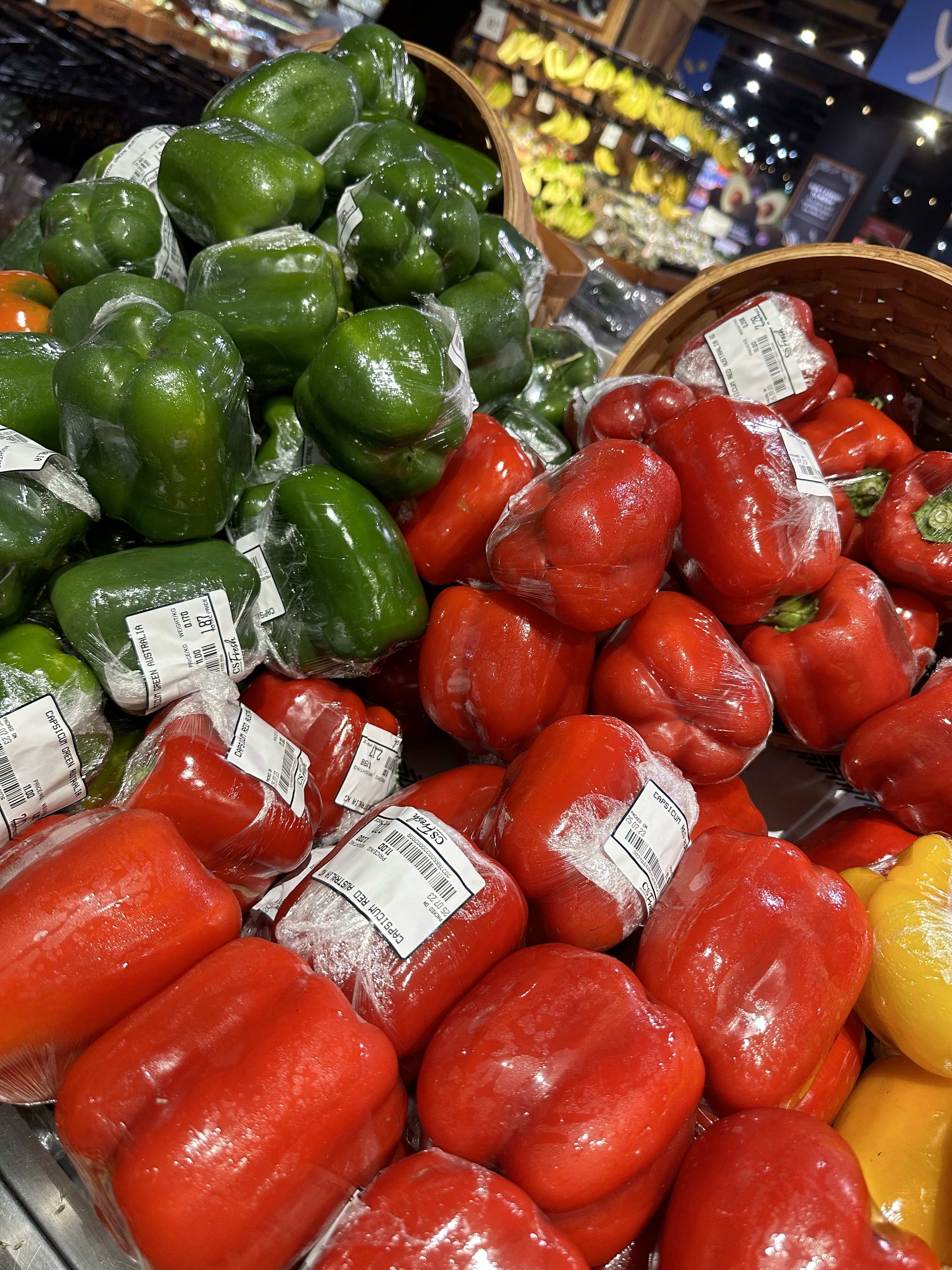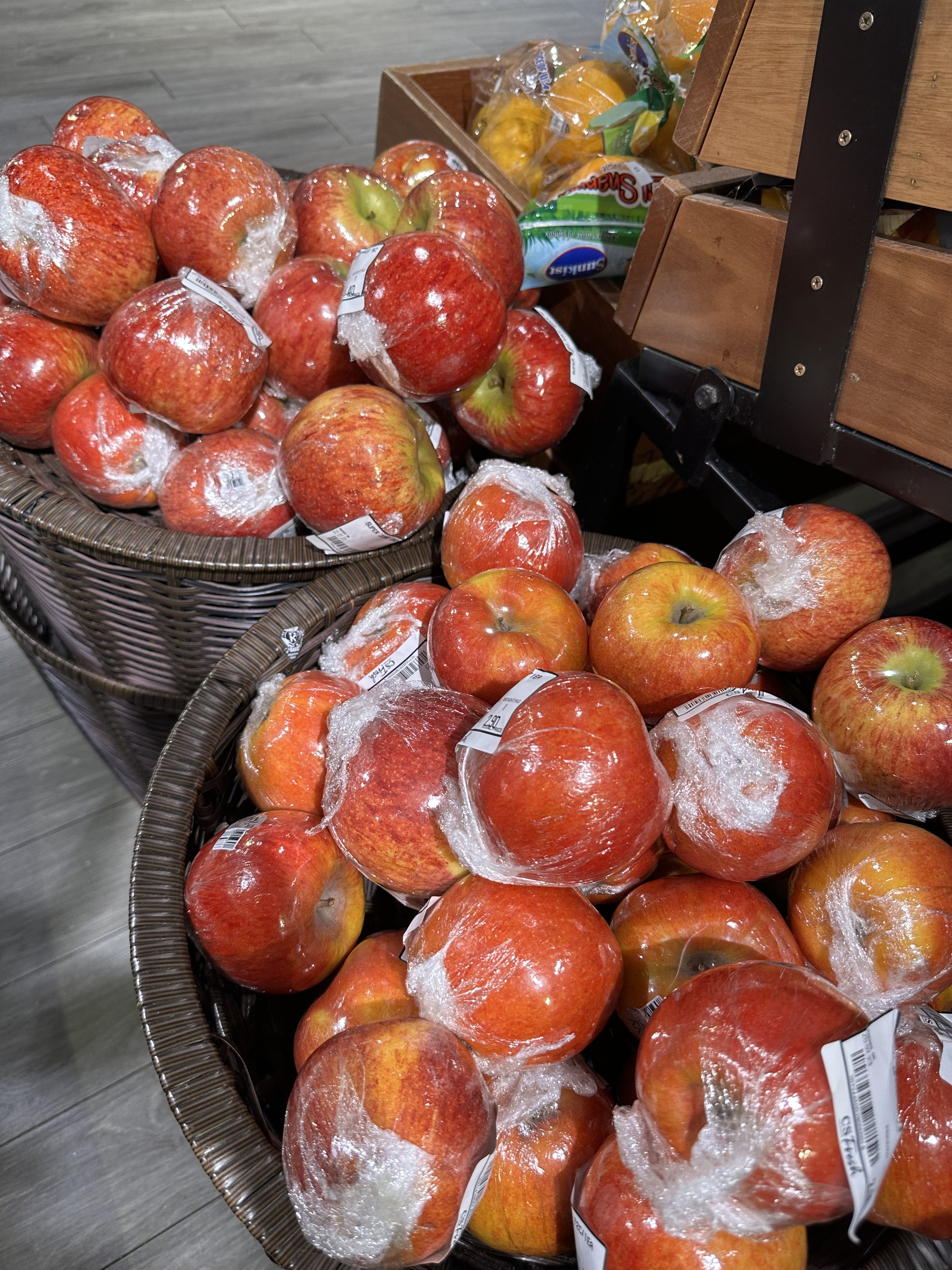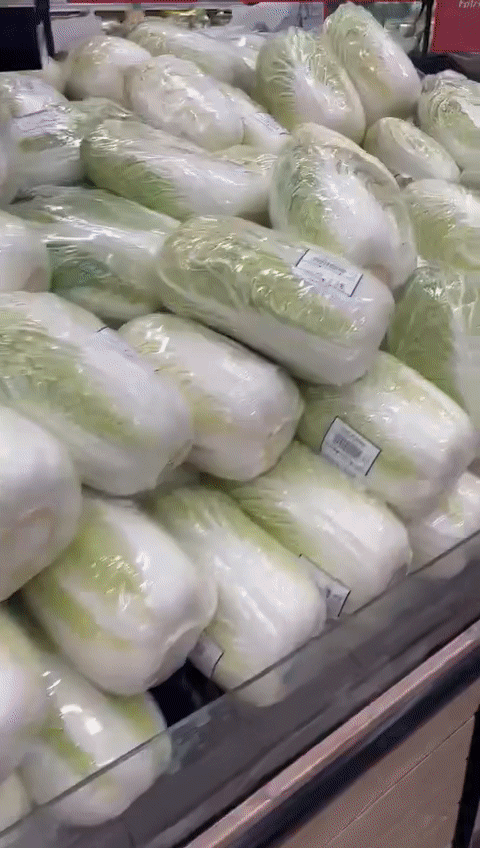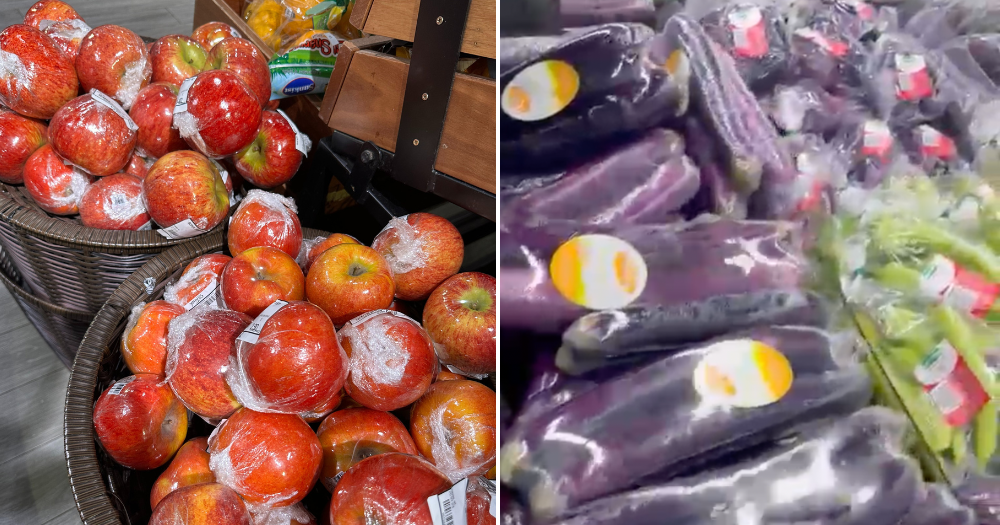A Mothership reader was appalled at the amount of plastic used to wrap individual fruits and vegetables at Singapore supermarkets.
Photos she sent of the situation at two supermarket outlets, FairPrice Xtra at Nex Mall, and Cold Storage at Great World City, showed the fresh produce individually wrapped in plastic cling wrap.
 Photo from Mothership reader
Photo from Mothership reader
 Photo from Mothership reader
Photo from Mothership reader
A video of the produce section at FairPrice showed that the majority of items were all wrapped up, either in plastic cling wrap or plastic packaging, save for some vegetables such as white radishes and bitter gourds.
 Video from Mothership reader
Video from Mothership reader
Work in progress
The reader highlighted that such packaging contradicts the recent implementation of plastic bag charges across all supermarkets.
"All this actions certainly are against the main reason why supermarkets are charging 5 cents per plastic bag, to reduce plastic waste," the reader added.
She also questioned how much plastic waste is generated by wrapping individual pieces of produce.
In response to Mothership's queries, FairPrice shared that the plastic bag charge that took effect on Jul. 3 is a "big step towards changing our consumer culture and reducing the use of single-use carrier bags".
FairPrice stated that plastic packaging will still be used for a range of fresh produce.
It added:
"We hear the concerns raised and will explore how to best reduce such packaging without compromising on hygiene and produce quality.
As a responsible retailer, FPG is constantly looking at ways to reduce our impact on the environment and promote a low carbon and circular economy."
Similarly, DFI Retail Group, which manages Cold Storage and Giant, said that they are "committed to the move to reduce single-use plastics".
They are currently in the process of implementing other plastic-reducing changes, including the removal of such packaging from stores.
"We are also currently working closely with our suppliers for more sustainable packaging solutions in service of the overall reduction of plastic use," DFI stated.
For now, their supermarkets will continue to offer customers the thin plastic bags used to bag fruits, vegetables and seafood.
However, they urge customers to use only what they need.
More about the plastic bag charge
Second Minister for State for Sustainability and the Environment (MSE) Amy Khor previously said that "by making the cost of disposable bags visible to consumers, the charge will nudge consumers to be mindful of and reduce their usage of disposable bags".
The charge currently applies to disposable carrier bags with handles, such as t-shirt bags, and die-cut or punched handle bags.
Disposable non-carrier bags, such as flat-top plastic bags for bagging fresh produce, meat or seafood will not be subjected to the charge.
Proceeds for the charge will go towards environmental and social causes.
To ensure transparency and accountability, supermarkets will be required to publish information on the number of bags issued, the amount of proceeds collected, and how the proceeds are used.
NZ bans thin plastic bags
Meanwhile, New Zealand recently became the first country to ban the thin plastic bags that supermarket customers use to bag fruits and vegetables.
Instead, shoppers are encouraged to carry mesh, paper or canvas bags to hold their produce.
Officials can also impose penalties on businesses that flout the rules.
Top photo from Mothership reader
If you like what you read, follow us on Facebook, Instagram, Twitter and Telegram to get the latest updates.



